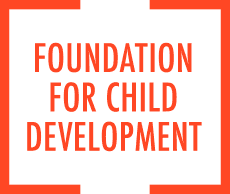https://www.fcd-us.org/preparing-early-childhood-teachers-to-successfully-educate-all-children/
Two papers from the Erikson Institute show that state-based teacher preparation standards and teacher education programs do not adequately address the developmental and educational needs of diverse groups of children.
Executive Summary
Preparing Early Childhood Teachers to Successfully Educate All Children
Aisha Ray, Barbara Bowman, and Jean Robbins
Highly qualified teachers specifically trained to work effectively with a diverse population of children are essential if early education (defined as Prekindergarten through the early elementary grades) programs can help all children succeed in school. The results presented in these two reports, however, show that state-based teacher preparation standards and teacher education programs do not adequately address the developmental and educational needs of diverse groups of children, their families, and communities.
Researchers found that discussions of diversity in teacher preparation standards lack specificity and clarity. Only a few hours of coursework and little practice are devoted to training early childhood educators how to teach children who are not white, middle-class, able-bodied, and English-speaking.
Report I: The Contribution of State Boards of Higher Education and National Professional Accreditation Organizations
This study examined the websites of the 30 state boards of higher education and three national professional accreditation organizations with early education teacher preparation standards or elementary teacher standards with an early education endorsement. Researchers identified eight coding categories that reference children’s characteristics typically associated with diversity. They examined the extent to which diversity categories are addressed in standards and whether the categories are adequately defined.
Key findings:
- To different degrees, all 30 state standards refer to diversity categories.
- Only 25 percent of these states define diversity terms that appear in their standards.
- Of the three national professional accreditation organizations, the Council of Exceptional Children and the National Association for the Education of Young Children refer to diversity categories in each of their early education teacher standards. The National Board of Professional Teaching Standards does so in a separate standard devoted to diversity.
Given the influential role national and professional organizations perform in setting criteria for early education teacher competence, it is imperative that their standards adequately reflect the developmental and educational needs of all children.
Key recommendations for state boards of higher education and national professional accreditation organizations with early education standards or endorsements are to:
- Provide carefully considered and detailed rationales regarding the relationship of the developmental and educational needs of all children to teaching and learning.
- Include standards to describe the knowledge and practice skills related to the developmental and educational needs of children of color, low-income children, children with special needs, second language/dialect speakers, and children living in immigrant families.
- Apply standards that address the developmental and educational needs of all children to all subject matter in teacher preparation curriculum.
Report II: The Contribution of Four-Year Undergraduate Teacher Preparation Programs
This study examined the extent to which early childhood teacher education programs awarding the bachelor’s degree require that teachers learn content and practice skills that address the education and developmental needs of all children. Researchers identified 11 diversity coding categories for this study. Data were gathered from web sites of 226 schools, representing one-third of accredited U.S. bachelor’s degree programs that train early childhood teachers.
Key findings:
- Bachelor’s degree programs, on average, require 8.62 semester hours of coursework that primarily or only address special education. This represents 12.8 percent of the total professional coursework required.
- All other diversity categories represent a total of 8.37 required semester hours, 12.5 percent of the total coursework.
- Only 7 percent of bachelor’s degree programs indicate that they expect future teachers to have an experience in which they will be exposed to diverse children.
Key recommendations for early education teacher preparation programs are to:
- Develop new educational pedagogies that effectively provide prospective early education teachers with knowledge about the development of all children. Educators of teachers should develop descriptions of what competent teachers should know and do for children in their diversity.
- Require that all prospective early education teachers have training in teaching English as a second language.
- Require pre-service experience with diverse children and families.
